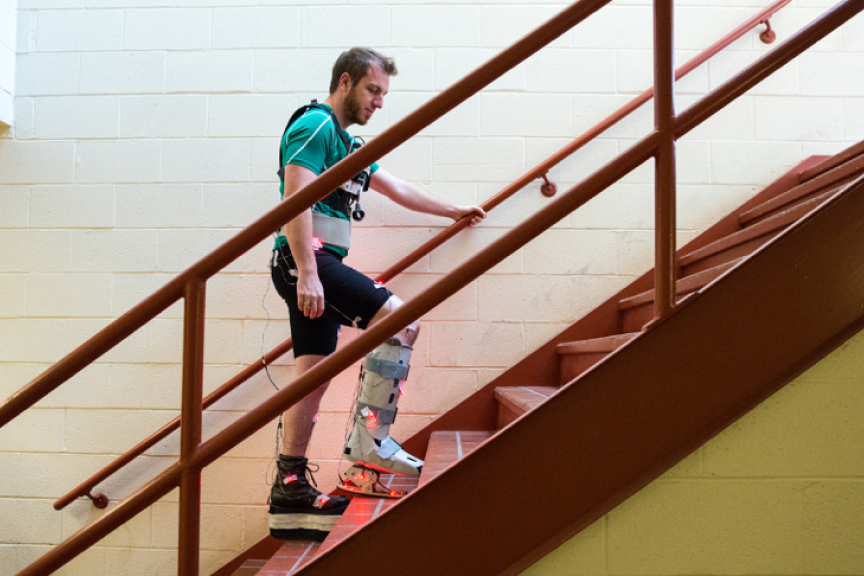
Master's Program

As a master’s student, you’ll work closely with a faculty advisor to develop an academic program and research projects tailored to your particular interests. A thesis option is available in this program.

Program Overview
Students who pursue a Movement Science Master of Science degree study human movement in depth from different perspectives. Our graduate faculty are leading scholars in several movement-related areas including exercise physiology, motor control and development, biomechanics, and sport-related injury prevention.
In addition to coursework, our program provides students with the opportunity to gain valuable and relevant research experience focused on topics such as obesity, diabetes, mechanisms and prevention of joint injury, concussion, movement-based rehabilitation, and learning and adaptation of motor behavior across the lifespan.
Graduate training often involves collaborations with other units on campus including engineering, psychology, public health and medicine. An important aspect of our program is the flexibility in course selection and research areas which allow students to tailor their program of study to fit individual interests. Graduates are well-prepared to pursue doctoral research studies, professional health care programs including medicine and rehabilitation, health and wellness, as well as positions in the private and public sector.
Thesis Option
A student with a B+ average for the first twelve credit hours of graduate work will be permitted to proceed with writing a master’s thesis. In addition to a thesis advisor, the student must have two other faculty members serve on his/her thesis committee. Students considering writing a thesis are strongly encouraged to discuss possible topics with potential thesis advisors soon after entering the program.
Movement Science Master's Curriculum
Degree Requirements
Students in the Movement Science Master of Science program must:
- Complete a minimum of 30 credit hours for the MS degree;
- Complete KINESLGY 615 (Philosophy of Science & Research);
- Complete one graduate-level statistics course;
- Elect at least 9 hours of Kinesiology coursework. Five of these may be for independent research (e.g. KINESLGY 684), practicum experience, or internships (e.g. KINESLGY 680 and 686);
The courses you take will vary, depending on your educational goals. Courses taken for graduate credit will carry MOVESCI or KINESLGY program codes.
Browse only KINESLGY courses in the Course Catalog
Movement Science Graduate Faculty
Our Movement Science graduate faculty are leaders in their fields, and have a variety of interests and specialties. View the MVS graduate faculty list.
Forms & Bulletins
Bulletins contain important information about graduate study in the University of Michigan School of Kinesiology. They provide key information about academic program requirements, rules, and regulations of our School. Please also consult U-M’s Rackham School of Graduate Studies website at rackham.umich.edu for more expansive and detailed information.